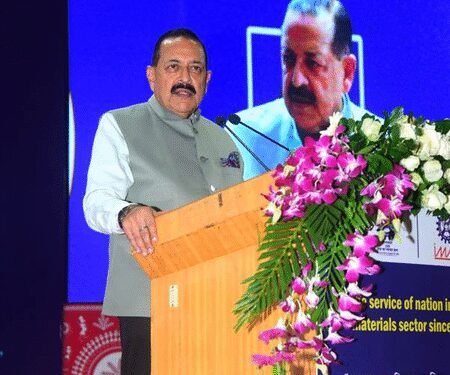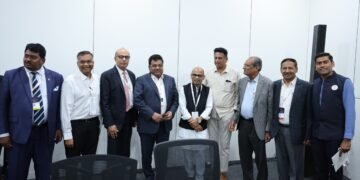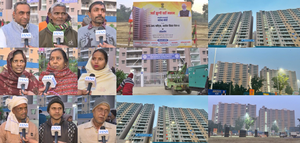
Bhubaneswar, Nov 13 (IANS) India’s fight against diabetes and other rising metabolic disorders requires Indian data for Indian solutions, supported by long-term scientific evidence, said Union Minister for Science & Technology, Jitendra Singh, on Thursday.
The Union Minister made the remarks at the inauguration event of the National Conclave on Longitudinal Cohort Studies – “Cohort Connect 2025” at CSIR-IMMT, Bhubaneswar. The conclave focuses on advancing research into India’s genetic, environmental, and lifestyle determinants of health to enable personalised genetic-based treatments and preventive healthcare strategies.
In his inaugural address, Singh said that the discussions taking place a day before World Diabetes Day carry special relevance, as metabolic disorders like diabetes are rapidly emerging as a major national health challenge.
He emphasised that diabetes today represents not just a clinical condition but a complete spectrum of vascular, neurological, and renal complications, making scientific research in this domain critical for national planning.
The minister emphasised that India continues to deal simultaneously with both communicable and non-communicable diseases, and the reciprocal link between diabetes and infections such as tuberculosis requires integrated policy responses rather than compartmentalised programmes.
“India’s phenotypic uniqueness has been acknowledged for decades, but could never be scientifically validated due to limited genomic and epidemiological infrastructure. With initiatives like CSIR-led Phenome India and the large-scale longitudinal cohort studies being undertaken, India now can accurately capture how genetics, environment, diet, and lifestyle shape disease predisposition in Indian populations,” underscored the Union Minister.
Singh shared clinical and historical insights illustrating how global medical understanding has evolved- from pre-insulin starvation-era diabetes management to today’s genetic therapies, and urged caution in adopting new drugs and technologies without long-term evidence suited to Indian populations.
Highlighting government initiatives, Singh said that both CSIR and the Department of Biotechnology are working actively on human genome sequencing, with nearly 10,000 human genomes already sequenced and the target of one million genomes progressing rapidly.
He also mentioned India’s first successful haemophilia trial with indigenously developed Factor VIII, underscoring India’s rising capabilities in advanced biomedical research.
“The government is simultaneously working on vaccines for diseases like dengue, malaria, and tuberculosis, while AI-driven diagnostics, digital health platforms and quantum-enabled solutions are increasingly becoming part of India’s medical ecosystem,” added Singh.
The Minister reiterated that with 70 per cent of India’s population below 40, prevention must be the central pillar of India’s future health strategy. A robust cohort study ecosystem, he said, will generate actionable datasets for preventive, prophylactic and therapeutic pathways tailored to Indian needs.
–IANS
gyan/dan







